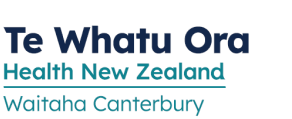What does it do?
Zoledronic acid is used to treat bone pain caused by cancer, and reduce the amount of calcium in your body.
Before you start
- Tell your doctor if you have kidney, parathyroid, or dental problems.
- Zoledronic acid can cause kidney problems. Your doctor will check how your kidneys are working before your infusion.
- Zoledronic acid may cause problems in your jaw bone. You should be offered a dental check-up before you start to make sure your teeth and gums are healthy. Clean your teeth and visit your dentist regularly. Before you have any dental work, tell your dentist you have had a zoledronic acid infusion.
- Tell your doctor if you are pregnant, planning to become pregnant, or breastfeeding.
How is it given?
Zoledronic acid is given as an infusion into a vein over 15 to 30 minutes.
Can you take other medicines?
Some medicines available without a prescription may react with zoledronic acid including:
- anti-inflammatories, such as diclofenac (e.g. Voltaren®), ibuprofen (e.g. Nurofen®), or aspirin (e.g. Disprin®, in doses used for pain relief). These can also be found in some cold and flu medicines (e.g. Nurofen Cold and Flu®).
Tell your pharmacist or doctor about all medicines or treatments that you may be taking, including vitamins, herbal products or recreational drugs.
What side effects might you notice?
| Side Effects | Recommended action |
|---|---|
|
Eye pain, changes in vision |
Tell your doctor immediately |
|
Symptoms of low calcium in your blood, including: tingling or numbness, muscle spasms, short of breath Joint, muscle or bone aches and pains Stomach upset |
Tell your doctor if troublesome |
|
Flu-like symptoms (fever, chills, aches and pains) |
This usually passes after a few days, take paracetamol if needed |
If you notice any other effects, discuss them with your doctor or pharmacist.
This leaflet contains important, but not all, information about this medicine.
Prepared by the MyMedicines Committee at Christchurch Hospital, Te Whatu Ora - Waitaha, New Zealand. March 2023
For more general information about this sheet and its contents, see: What does a My Medicines sheet cover?
Te Reo Māori
Te Reo Māori information sheets supported by Health Quality and Safety Commission New Zealand
Web links for this sheet in different formats
Click on buttons to copy web addresses for this leaflet:
If your browser does not automatically copy these links use its copy command instead.
About My Medicines
My Medicines Patient Information Leaflets (PILs) contain important, but not all, information about the medicines they describe.
For more information about the sheets, see: What does a My Medicines sheet cover?
My Medicines is developed by a team at Te Whatu Ora – Waitaha. Our team is made up of doctors, pharmacists, and a non-medical person to help us keep to plain language. We also discuss our information with specialist health professionals or groups when needed

